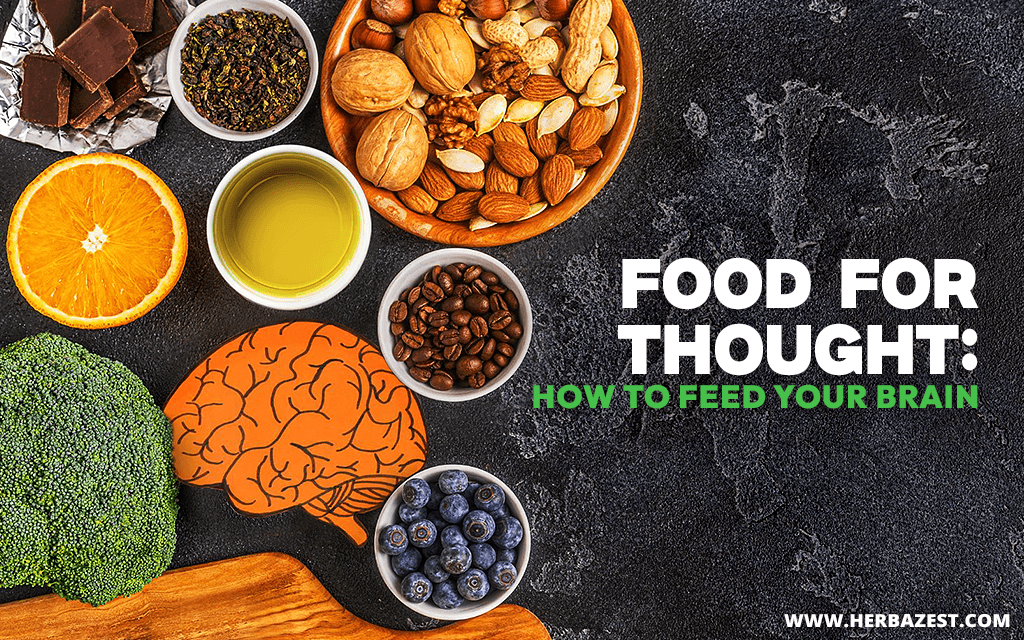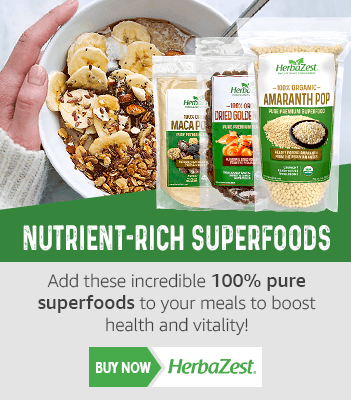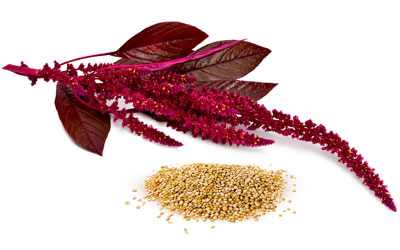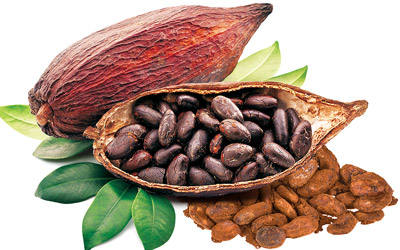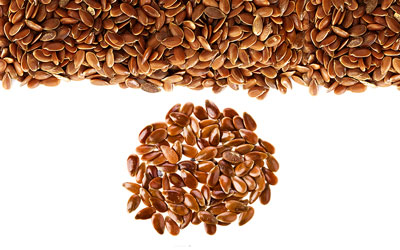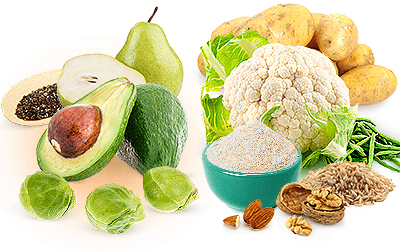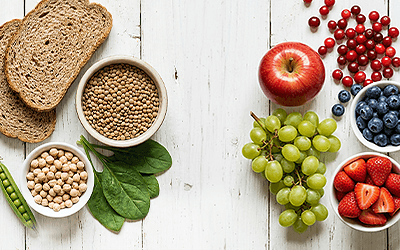Your brain never rests, even when you are sound asleep, and it needs to be fed properly to work at its best. Despite representing only 2% of the average body weight, the human brain consumes about 20% of daily calories; this metabolic rate remains steady in every stage of human life, regardless of the amount of physical and mental activity.1
Everything you consume transforms into glucose, which travels through your bloodstream and serves as the main source of energy for the brain. Glucose is used for producing neurotransmitters and neurons, the brain cells that send and receive electrical signals through the central nervous system. These signals enable complex thinking and body movement.2
Learn how to feed your brain by enriching your diet with vitamins, minerals, and healthy fats, all of which are essential for brain health at every stage of life.
Best Brain-Boosting Foods
Ideally, the supply of glucose and micronutrients you need for optimal brain function should be enough to "fill up the tank," so to speak, to keep you mentally and physically active during the day. In addition to glucose, these are the nutrients that are essential for a healthy brain:
Vitamins
Leafy greens are good for your brain; they can effectively hold back age-related cognitive decline.
While all vitamins contribute to overall health, there are specific micronutrients that are essential for the human brain:
B-group vitamins. Vitamins B1 (thiamine), B2 (riboflavin), B9 (folate), and B12 (cobalamin) are necessary for energy metabolism and the production of new cells. Some of the best plant-based sources of B vitamins are amaranth, quinoa, broccoli, spinach, asparagus, beans, peanuts, and sunflower seeds. Vitamin B12 is particularly important for mood since it is involved in serotonin production, and it is found almost exclusively in animal sources (like red meat, eggs, liver, cheese, and seafood); however, vegans can obtain this essential nutrient from tofu and supplements in order to prevent depression and anemia.
Vitamin C (ascorbic acid). This water-soluble vitamin, with great antioxidant properties, is absolutely necessary for the production of neurons and the speed of electric impulses that make the communication between them (synapsis) possible. While citrus fruits, such as oranges and lemons, are widely available, some of the best-known natural sources of vitamin C are camu camu, red bell pepper, kiwi, kakadu plum, and guava.
Vitamin D. This fat-soluble nutrient supports the production of new brain cells as well as serotonin, enhancing mood and cognitive functions. While it is not abundant in nature, small amounts can be found in animal sources, such as beef liver, egg yolk, cod liver oil, and cold-water fish as well as enriched foods, such as cereals, dairy products, and vegetable milk. If you take a short walk every day, your skin will absorb vitamin D from sunlight. However, in some places in the world where the sun scarcely shows up throughout the year, it is common for people to suffer from vitamin D deficiency, which can be remediated by taking supplements.
Vitamin E. This abundant micronutrient comes in eight different forms, being alpha-tocopherol the most useful form for the human body. The brain requires this fat-soluble vitamin to prevent cellular damage from free radicals, and many studies support the positive role of alpha-tocopherol in cognitive functions and mood.3 Vitamin E is present in many fruits and vegetables, such as apricot, avocado, mango, kiwi, broccoli, pumpkin, red bell pepper, and green leaves; in nuts and seeds, particularly almond, hazelnut, peanut, pine nut, sunflower seeds, and pumpkin seeds; and in plant-based oils, including wheat germ oil and sunflower oil.
Minerals
Besides vitamins, minerals play a crucial role in brain development and cognitive performance. Brain experts agree that the following minerals should be present in your daily meals as part of a well-balanced diet:
Calcium. This mineral is essential for nerve transmission and muscle contraction. Some of the best plant-based sources of calcium are almonds, beans, broccoli, leafy greens.
Iodine. This mineral is vital for the production of thyroid hormones, which regulate metabolism and brain development. Some of the best natural sources of iodine are eggs, seaweed, strawberry, beans, potato.
Iron. This mineral is important for the transport of oxygen and the synthesis of neurotransmitters. It is present in quinoa, chickpea, lentil, tofu.
Magnesium. It is involved in many enzymatic reactions, such as memory and learning. It can be found in almond, avocado, cacao, cashew, persimmon, pumpkin seeds.
Selenium. This mineral is a powerful antioxidant that protects the brain from oxidative stress and inflammation. Some of the top sources of selenium include Brazil nut, brown rice, cashew, sunflower seeds, mushrooms.
Zinc. It is essential for the growth and maintenance of brain cells, as well as the modulation of neurotransmitters and hormones. It is found in beans, chickpea, lentil, oat, tofu.
Polyunsaturated Fatty Acids
Fatty acids have been crucial for human evolution; in fact, a huge portion of the brain (about 60%) is composed of fat, which our bodies can't produce and must be obtained from food.5
There are two major groups of polyunsaturated fatty acids: omega-3 and omega-6, which are considered "healthy fats." However, omega-3 fatty acids are the building blocks for brain cell structure, not only enhancing cognitive functions and mood, but also delaying the onset of age-related cognitive decline and helping reduce the risk and symptoms of neurological diseases, such as dementia, Parkinson's disease, and Alzheimer's disease.4
While omega-3 fatty acids can be obtained from fish, great plant-based sources include:
Seeds, such as chia, flax, sacha inchi, sunflower, and sesame.
Nuts, like walnuts, macadamia nuts, Brazil nuts, and pecans.
Healthy oils, including flaxseed oil, sacha inchi oil, cold-pressed olive oil, soybean oil, and canola oil.
If you are feeling down, can't get a good night's sleep, or have a hard time focusing on the tasks at hand, chances are that a nutritional deficiency is involved, and your brain is in distress. A routine blood work can tell you exactly what you need to feel better. So, add these brain-boosting foods to your meals and remember: a healthy diet makes a happy brain!
Sources
- Cureous, Effects of Omega-3 Polyunsaturated Fatty Acids on Brain Functions: A Systematic Review, 2022
- Harvard T.H. Chan - School of Public Health, The Nutrition Source, Vitamin D, n.d.
- Healthy South Dakota, Brain Foods that May Help You Concentrate, n.d.
- Maryland Government, Food and Mood: How What You Eat Affects You, n.d.
- National Institutes of Health, National Institute of Neurological Disorders and Stroke, Brain Basics: The Life and Death of a Neuron, n.d.
- Nature Reviews Neuroscience, Brain foods: the effects of nutrients on brain function, 2010
- Nutrients, Vitamins and Minerals for Energy, Fatigue and Cognition: A Narrative Review of the Biochemical and Clinical Evidence, 2020
- USDA Agricultural Research Center, Nuts and Seeds as Sources of Alpha and Gamma Tocopherols
Footnotes:
- Proceedings of the National Academy of Sciences (PNAS). (2002). Appraising the brain's energy budget. Retrieved November 3, 2023, from: https://www.ncbi.nlm.nih.gov/pmc/articles/PMC124895/
- Trends in Neuroscience. (2013). Sugar for the brain: the role of glucose in physiological and pathological brain function. Retrieved November 3, 2023, from: https://www.ncbi.nlm.nih.gov/pmc/articles/PMC3900881/
- Healthcare (Basel). (2021). The Role of Vitamin E in Slowing Down Mild Cognitive Impairment: A Narrative Review. Retrieved November 6, 2023, from: https://www.ncbi.nlm.nih.gov/pmc/articles/PMC8625211/
- Alzheimer's & Dementia. (2020). Dietary fatty acids and risk of Alzheimer's disease and related dementias: Observations from the Washington Heights-Hamilton Heights-Inwood Columbia Aging Project (WHICAP). Retrieved November 3, 2023, from: https://pubmed.ncbi.nlm.nih.gov/32715635/
- Acta Neurologica Taiwanica. (2009). Essential fatty acids and human brain. Retrieved November 3, 2023, from: https://pubmed.ncbi.nlm.nih.gov/20329590/

